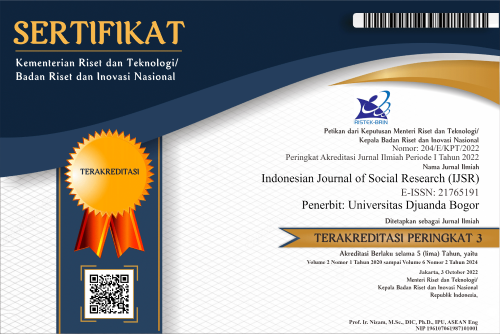Grammatical errors in Essay writing: A study based on ESL students of English Department at South Eastern University of Sri Lanka
Abstract
Grammatical knowledge plays a crucial role in the process of writing. Most ESL learners are encountering several grammatical errors in their writing skills. For this reason, they are producing a different kind of grammatical errors, particularly in their Essay writing. This present study attempts to analyse the dominant grammatical errors and the causes of the errors which are committed by the ESL students of the English Department at the South Eastern University of Sri Lanka. The study was effectively conducted by collecting authentic data in relation to this topic. The data were collected from the sixteen selected ESL students by distributing a Google form, conducting an Interview, and finally placing an Essay writing test to evaluate their errors. After finishing the data collection, the grammatical errors were classified into eleven categories based on the questionnaire distribution and Essay writing test. Those identified grammatical errors were Capitalization, Spelling, Punctuation, Article, Preposition, Verb tense, Question, Subject-verb agreement, Word order, Word choice, and Plurality. The results of this data collection illustrate that the most dominant errors were Verb tense. Its percentage is 56.3%. The minority of errors were Plurality (6.3%). The second most dominant error was Word choice (43.8%). On the other hand, there were three types of grammatical errors Punctuation, Capitalization, and Subject-verb agreement, committed by the ESL students at the similar level (18.8%). 37.5% percentage of grammatical errors were in Spelling. The last first errors were Preposition, Word order, and Question in the equal level (12.5%). The current study investigated that the causes of errors were first language interference, lack of vocabulary knowledge, unawareness of tenses, poor speaking skills in the English language, and less writing practice. Meanwhile, the dominance of the first language was considered as the major cause of the students' errors in writing. In a nutshell, the ESL students of the English Department at the South Eastern University of Sri Lanka still have a serious problem in particular grammatical aspects. Therefore, at the end of this study, there were some beneficial suggestions suggested that the lecturers and the students must do some efforts to reduce the grammatical errors in writing.
References
Banga, C. L., Suri, J., & Delhi, N. (2015). Role of Language in human life. International Journal of English Language, Literature and Humanities, 3(7), 180–197.
Chodorow, M., & Leacock, C. (2000). An unsupervised method for detecting grammatical errors.
Ellis, R., & Barkhuizen, G. P. (2005). Analysing learner language. Oxford University Press Oxford.
Kumala, B. P., Aimah, S., & Ifadah, M. (2018). An Analysis of Grammatical Errors on Students’ Writing. 2, 144–149.
Limengka, P., & Kuntjara, E. (2013). Types of grammatical errors in the essays written by fourth-semester students of English department, Petra Christian University. K@ Ta Kita, 1(1), 230–238.
Maros, M., Tan, K. H., & Salehuddin, K. (2007). Interference in learning English: Grammatical errors in English Essay writing among rural Malay secondary school students in Malaysia. E-BANGI: Jurnal Sains Sosial Dan Kemanusiaan, 2(2), 15.
Muhsin, M. A. (2016). Analysing the students errors in using simple present (A case study at Junior High School in Makassar). Pacific Science Review B: Humanities and Social Sciences, 2(3), 81–87.
Myles, J. (2002). Second language writing and research: The writing process and error analysis in student texts. Tesl-Ej, 6(2), 1–20.
Nonkukhetkhong, K. (2013). Grammatical error analysis of the first year English major students, Udon Thani Rajabhat University. 117–126.
Okpe, A. A., & Onjewu, M. A. (2017). Difficulties of Learning Essay Writing: The Perspective of Some Adult EFL Learners in Nigeria. International Journal of Curriculum and Instruction, 9(2), 198–205.
Promsupa, P., Varasarin, P., & Brudhiprabha, P. (2017). An analysis of grammatical errors in English writing of Thai university students. HRD JOURNAL, 8(1), 93–104.
Rabiah, S. (2018). Language as a tool for communication and cultural reality discloser.
Richards, J. C., Richards, J. C., & Renandya, W. A. (2002). Methodology in language teaching: An anthology of current practice. Cambridge university press.
Rizvi, N. M., Saujan, I., & Munas, M. (n.d.). Difficulties in Translating Personal Pronouns in Arabic and English Languages: Study based on Linguistic and Translation Students, South Eastern University of Sri Lanka.
Sanjayan, K. (2018, 02 21). International Mother Language Day . Retrieved from SBS Tamil: https://www.sbs.com.au/language/tamil/international-mother-language-day-21-february
Shaari, A. A. N. (1987). Development of Successful Integrated Timber Complexes (ITC’s) in Peninsular Malaysia.
Wulandari, R. S., & Harida, R. (2021). Grammatical error analysis in essay writing. Deiksis, 13(1), 73–81.
United Nation . (n.d.). Peace dignity and eguality on a healthy planet. Retrieved from official Language: https://www.un.org/en/our-work/official-languages
Copyright (c) 2022 Indonesian Journal of Social Research (IJSR)

This work is licensed under a Creative Commons Attribution-ShareAlike 4.0 International License.
The Authors submitting a manuscript do so on the understanding that if accepted for publication, copyright publishing of the article shall be assigned/transferred to Indonesian Journal of Social Research (IJSR) Universitas Djuanda as Publisher of the journal. Upon acceptance of an article, authors will be asked to complete a 'Copyright Transfer Agreement'. An e-mail will be sent to the corresponding author confirming receipt of the manuscript together with a 'Copyright Transfer Agreement' form by online version of this agreement.
Indonesian Journal of Social Research (IJSR) Universitas Djuanda, the Editors and the Editorial Board make every effort to ensure that no wrong or misleading data, opinions or statements be published in the journal. In any way, the contents of the articles and advertisements published in the Indonesian Journal of Social Research (IJSR) Universitas Djuanda are sole and exclusive responsibility of their respective authors and advertisers.
Remember, even though we ask for a transfer of copyright, our journal authors retain (or are granted back) significant scholarly rights as mention before.
The Copyright Transfer Agreement (CTA) Form can be downloaded here: Copyright Transfer Agreement-IJSR 2020
The copyright form should be signed electronically and send to the Editorial Office e-mail below:
Dr. Rasmitadila, M.Pd (Editor-in-Chief)
Universitas Djuanda
Jl. Tol Jagorawi No.1, Ciawi, Kec. Ciawi, Bogor, Jawa Barat 16720
Website: http://journal.unida.ac.id/index.php/IJSR/index
Email: ijsr@unida.ac.id





4.png)



